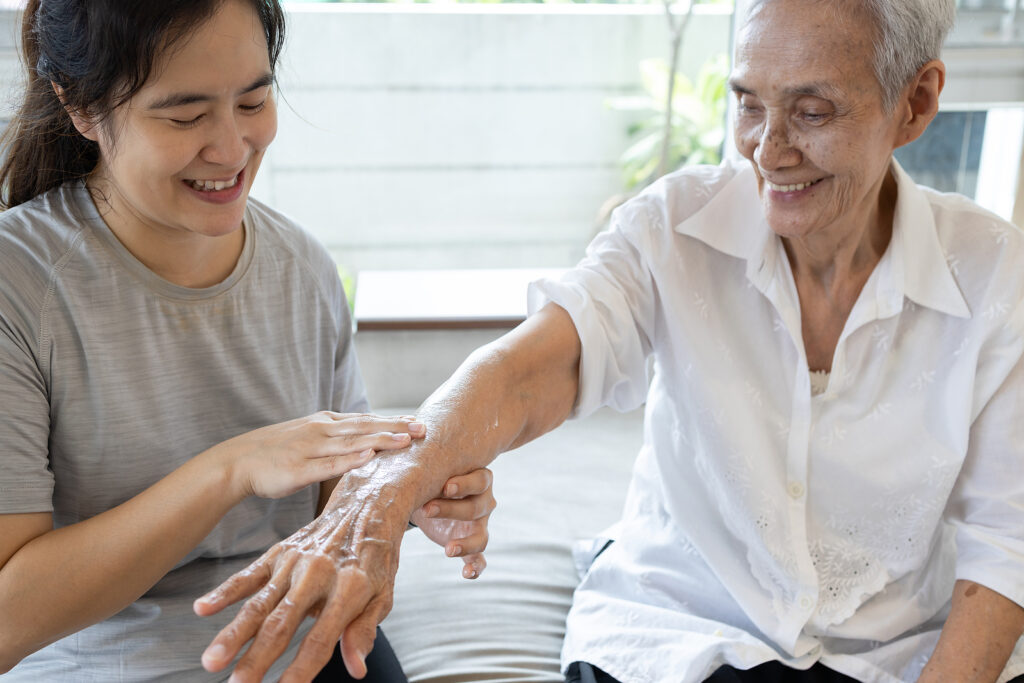Caring for an older person with sensitive skin requires extra care and attention. This is because the skin gets more sensitive and prone to itching with age, making it more important than ever to take good care of it to prevent problems. Having companion care at home helps seniors maintain their skin and monitors for issues that might arise, ensuring they get swift care.
Light Products are Key
Seniors should use a light cleanser that doesn’t have any scent and is hypoallergenic. They should also use cold water instead of hot water because hot water can remove the skin’s natural oils. Loved ones and companion care at home aides can check the labels to see if the products are made for sensitive skin, meaning they contain no to minimal amounts of fragrances, dyes, and harsh chemicals.
Moisturize Often
With the help of companion care at home, seniors can find a hypoallergenic moisturizer without any scent to use right after they take a shower or bath while their skin is still wet. Regular hydration keeps the skin from getting dry. In addition, the companion care at home team can encourage them to remain hydrated throughout the day by drinking plenty of herbal tea or water.
Be Prepared For the Sun
To avoid getting too much sun, seniors should wear broad-spectrum sunscreen when they go outside. Exposure to the sun can make sensitive skin even more sensitive and raise the risk of skin damage and diseases.
Use Soft, Non-Irritating Fabrics
Make sure seniors’ clothes and bed sheets are made of soft, flexible, and hypoallergenic materials. Cotton is a good choice for many things. In addition, moisture-wicking properties should be considered as seniors are more likely to overheat, causing them to sweat and their skin to get irritated.
Focus on Diet and Nutrition
What seniors eat has a lot to do with the condition of their skin and their health in general. A well-balanced diet full of fruits, veggies, and healthy fats helps them avoid many issues as they age. If they need help shopping, prepping, or cooking, companion care at home can help.
Encourage Good Hygiene
Seniors should maintain good hygiene by washing their hands often and moisturizing afterward. Skin that is dry and cracked can be more likely to get sick.
Consult a Health Care Professional
If skin problems continue or worsen, seniors should talk to a health care professional, like a dermatologist or geriatric specialist, for personalized advice and treatment choices. This is also beneficial if loved ones suspect an issue with allergens in the home, causing seniors to have issues.
It’s important to understand that every senior’s skin is different, and what works for one person might not work for another. To keep their skin healthy and comfortable, it’s important to be patient, watch how their skin reacts to different products and routines, and make changes as required. With the support of companion care at home and loved ones, issues with sensitive skin can be minimized.


